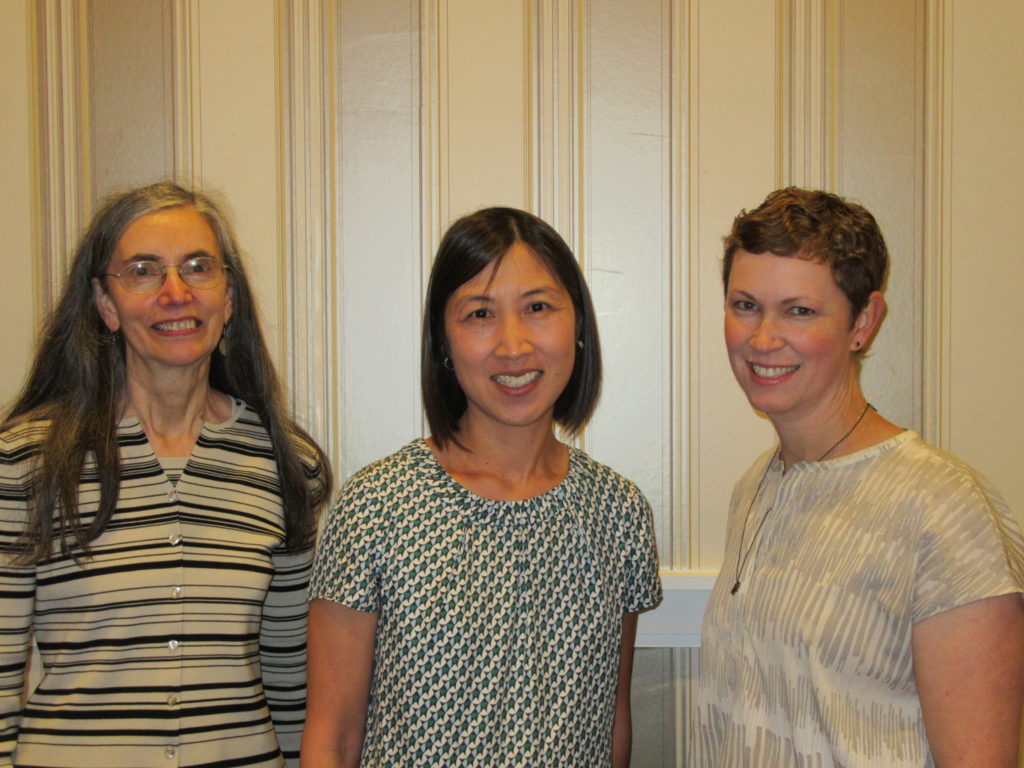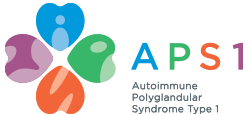The APS Type 1 Foundation (and before the Foundation was formed, the Talarico Family and the Seyfert Family) has been a driving force behind critical APS Type 1 research through the National Organization for Rare Disorders’ (NORD) Research Grant Program for more than a decade. To date, we have funded more than $550,000 in research through the NORD program.
HOW IT WORKS
With funds from our loyal donors, NORD administers seed grants to academic scientists for translational or clinical studies related to development of potential new diagnostics and treatments for rare diseases. Through NORD’s wide network of national and international researchers and its highly regarding medical advisory committee composed of rare disease experts, we’ve been able to expand our impact.
WHAT WE’VE FUNDED

Below is a list of the grants we’ve funded. Through NORD grants, we have met a tremendous group of researchers who are dedicated to our patients and work daily to find new treatments and a cure. Thank you to our generous donors for making these research grants possible!
GENERATION OF iPS-DERIVED TREGS FOR CELL THERAPY IN APECED
Principal Investigator: Matthieu Giraud
Institution: INSERM
Award Year: 2023
This project focuses on the potential for regulatory T cell (Treg) therapy, specifically looking at CD4+ and/or CD8+ Tregs. Its ultimate goal is to set up a production platform of immunosuppressive Treg that would, once transferred to APECED patients, alleviate the deleterious autoimmune manifestations of the disease. This therapeutic strategy would potentially benefit patients with the advantage that it requires a simple skin biopsy, rather than transplantation or other surgery.
DEVELOPING A NEW GENE THERAPY APPROACH
Principal Investigators: Rachid Tazi-Ahnini and Mimoun Azzouz
Institution: University of Sheffield, U.K.
Award Year: 2019
We have recently developed a novel gene therapy approach based on adeno-associated virus-mediated AIRE replacement (AAV-AIRE). In a mouse model of APS Type 1, direct AAV-AIRE injection to the thymus in pre-symptomatic mice led to clearance and protection of all tissues targeted by the immune attack. This proof-of-principle is an important step towards developing an efficient treatment for APS Type 1 patients.
THYMUS TRANSPLANTATION FOR APS1
Principal Investigator: Maureen A. Su
Institution: University of California, Los Angeles (formerly University of North Carolina at Chapel Hill)
Award Year: 2016
Building on the knowledge that APS Type 1 results due to problems with the function of the thymus gland, which fails to select out immune cells that cause autoimmune disease and to make immune cells that help prevent autoimmune disease, Dr. Su is using mouse models of APS Type 1 to try to halt autoimmune disease by taking out the native thymus and potentially replacing with a transplanted thymus gland from a donor that does not have APS1.
STEM CELL DERIVED HUMAN THYMUS FOR THE STUDY OF APS1
Principal Investigator: Mark S. Anderson
Institution: University of California, San Francisco
Award Year: 2014
The team at UCSF is currently developing a sophisticated humanized model of APS Type 1. The group is capitalizing on their recent success in being able to differentiate human thymic epithelial cells (TECs) from human pluripotent stem cells. The defective gene in APS Type 1, called AIRE, is highly expressed in TECs. To develop a model for APS Type 1, the group is using state of the art gene editing technology to mutate the AIRE gene in stem cell-derived TECs. The function of these AIRE deficient cells will be modeled in a humanized mouse model where the immune system is fully human. The results of these studies will allow a better understanding of the changes in thymus function that occur in APS Type 1, which will ultimately help with future therapies for this rare disorder.
DEVELOPMENT OF PRE-CLINICAL TOOLS FOR THE DIAGNOSIS AND MANAGEMENT OF APS TYPE 1
Principal Investigators: Anthony S. Shum and Mickie H. Cheng
Institution: University of California, San Francisco
Award Year: 2012
In collaboration with Mark Anderson (UCSF) and Eystein Husebye (University of Bergen) and building on the work of the 2010 study described below, this study aimed to discover which proteins are targeted by the immune system in APS Type 1 patients so that diagnostic tools can be developed and applied to clinical care. Through their work, they helped to develop and validate tools for better prediction and diagnosis of disease states in APS Type 1 and the development of therapeutic approaches to treatment, including with respect to the development of lung disease, candidiasis, autoimmune hypoparathyroidism, premature ovarian failure, and nerve disease.
NOVEL TRANSLATIONAL BIOMARKERS IN THE DIAGNOSIS AND MANAGEMENT OF APS TYPE 1
PrincipaI Investigators: Mark S. Anderson, Mickie H. Cheng, and Anthony S. Shum
Institution: University of California, San Francisco
Award Year: 2010
This study discovered and established markers in the blood that has since been applied to the clinical care of APS Type 1 patients, deploying the lessons from their extensive research in the mouse model of APS Type 1 with directed testing of samples from APS Type 1 patients. By integrating these results with clinical information, this study helped to define tools for better prediction and diagnosis of disease states in APS Type 1. In addition, these researchers developed and used an innovative new technique, known as exome sequencing, to look at genes in subjects with multiple autoimmune disorders that resemble the pattern seen in APS Type 1. By looking for mutations in the AIRE gene and new genes associated with disease in patients with what appear to be atypical presentations of APS Type 1, they helped to improve diagnosis of this rare and often puzzling syndrome. Furthermore, exome sequencing of known APS Type 1 patients in the study helped to verify known gene mutations and to identify new mutations that influence the disease.
CHRONIC CANDIDIASIS DEVELOPS IN THE ABSENCE OF NORMAL AIRE FUNCTION DUE TO A DEFECT IN THE INDUCTION OF IL-17 BY DENDRITIC CELLS
Principal Investigator: Daniela Cihakova
Institution: Johns Hopkins University
Award Year: 2008
Dr. Cihakova studied the mechanism of chronic Candida infection in Aire KO mice, which may guide pathomechanistic studies, as well as novel treatment strategies in human APS Type 1 patients. The investigators found that the decreased ability of APS Type 1 patients to fight specific yeast infection could be a result of ineffective Th17 response that is necessary to cure such infection. Results from AIRE deficient mice, which are a model of APS Type 1, suggest that multiple defects of dendritic cells contribute to insufficient TH17 response and chronic Candida infection. Chronic Candida albicans infection is one of the most prevalent symptoms of APS Type 1 found in virtually all patients. It often appears in early childhood and is very resistant to treatment. It can substantially impact a patient’s quality of life, causing not only chronic pain and cosmetic problems, but also an increased risk of developing cancer. Understanding the immunological defect that makes APS Type 1 patients so prone to this particular infection is essential for developing better treatment strategies.
HYPERMUTATION AS A CAUSE OF AUTOIMMUNITY IN AIRE DEFICIENCY
Principal Investigator: Matthias Wabl
Institution: University of California, San Francisco
Award Year: 2008
A deficiency in the autoimmune regulator (AIRE) leads to a large variety of clinical outcomes in patients with APS Type 1. But the AIRE deficiency by itself does not explain the failure of patients to fight off fungal infections (with the help of so-called antibodies). Our immune system stands ready to meet all kinds of different microbial threats, but it needs to get into focus for a particular pathogen. It does so by expanding the appropriate white blood cells specific to that pathogen and by sharpening their discrimination power. This study looked to explain the failure to mount good immune responses in APS Type 1 patients by suggesting that more antibody-producing white blood cells with irrelevant reactivity are expanded than in healthy persons, which, in turn, leads to an unfocused response.
